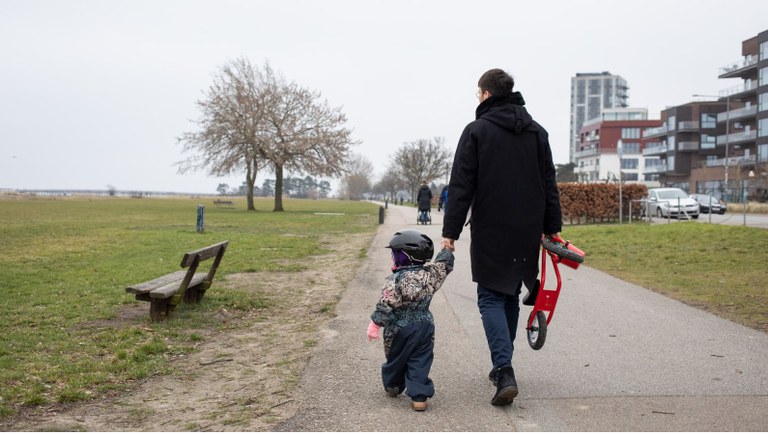Danish opposition to EU rules on daddy leave
Danish men who would like more paternal leave get support from new EU rules. But there is broad opposition in the Danish parliament to what is being seen as the EU meddling in Danish family affairs.
Parental leave is very unevenly distributed between the genders in many EU countries, including in Denmark. Danish women take far more parental leave than men, despite the fact that many Danish men would like to spend more time at home with their small children.
Danish men take far less time off after birth than Danish women, who take 90 %. Danish men also take less parental leave than men in other Nordic countries, despite the fact that many Danish men actually do want to spend more time at home with their small children than they do today. In principle at least.
Widespread discrimination
According to a 2016 report from the Danish Institute for Human Rights, more than one in five Danish men take less than the statutory leave they are due when becoming fathers – even if they would have liked to take more. The report linked this to family economy, and the fact that the child’s mother often wants to take as much of the shared leave as possible.

It also showed that pregnancy and maternity leave increases the risk for discrimination in the workplace. Danish parents are protected by law against workplace discrimination in relation to pregnancy and parental leave, yet discrimination is a widespread phenomenon in Danish workplaces. Nearly half of Danish women and a quarter of Danish men have experienced discrimination at work around the time they become parents, according to the report from the Institute for Human Rights.
Sharing the leave more equally
In light of all this, the Institute for Human Rights has recommended to the social partners and the government to pursue a more equal division of parental leave between men and women. This should reduce the discrimination of women.
There is both direct and economic discrimination. When mothers-to-be tell their employer they are about to have a baby, just under one in five experience a worsening of their working conditions. One in nine women face negative reactions from their boss when announcing the coming family expansion. One in seven women do not return to the same employer after their leave, and among those who do, 12 % are asked to do different tasks even if they do not want to.
Some are given less responsibility or are degraded. The study also showed that men and women’s average pay go in opposite directions after the birth of a child; women’s pay falls, and this economic inequality lasts for the rest of their lives.
The inequality in pay, mixed with women having more leave and less time to work when they become mothers, means they end up paying less into their pensions than men while they are in the labour market. As a result, the women have less to live off when they retire.
A hot potato
Nevertheless, parental leave earmarked the man remains a hot political potato. The former Social Democrat-led government earmarked parental leave for fathers as part of its government programme, and this remains a key strategy for the political left in Denmark.

Yet that point of the government’s programme was never implemented. It was not possible to secure backing for a model that would take away leave from women to give to men, and it was impossible to find a model that did not have that effect.
The EU has now secured earmarked parental leave for men. But Danish politicians are not applauding this fact. There is cross-party agreement that this is an issue which the EU should not get involved in. Family policy is considered to be a national issue.
So the EU did not have Denmark’s support when it decided that all member states must, within three years, earmark two months of parental leave for men. If these two months are not taken, they will be lost.
- About the new EU rules
-
The new directive says fathers can take at least ten days off around the birth of the child. The pay must be at least level with a country’s sick pay.
Current EU legislation allows at least four months parental leave per parent. One month is earmarked one parent, and cannot be transferred. The new directive keeps the four months per parent. Two of the months are earmarked one parent and cannot be transferred.
- Read more about discrimination in the workplace
-

 Follow us on Facebook
Follow us on Facebook
